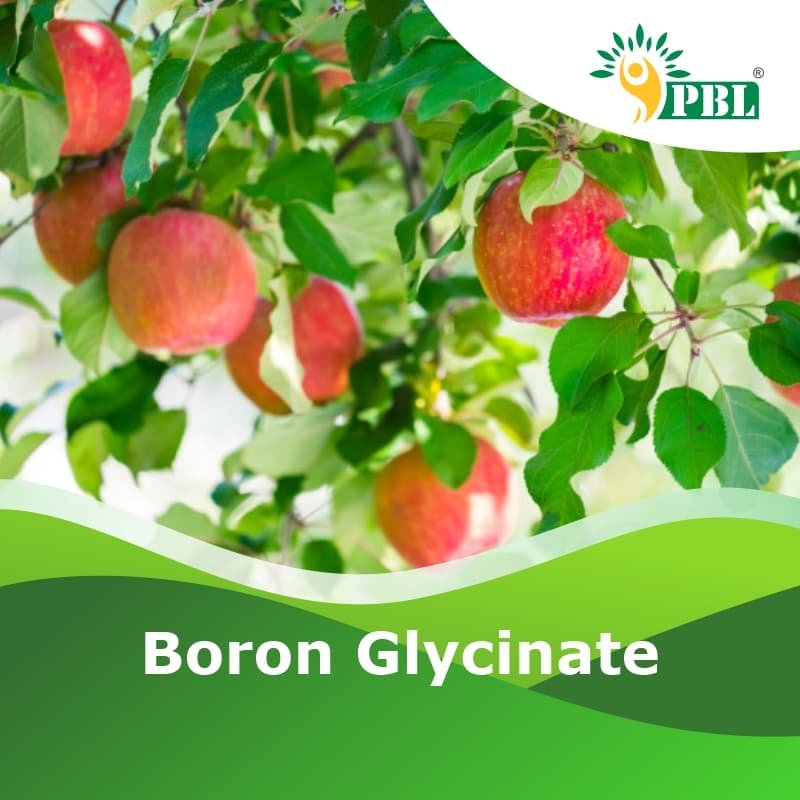Description
Role of Boron
- Facilitates Sugar translocation and synthesis of nucleic acids and plant hormone.
- Essential for germination of pollen grain and growth.
- Facilitate seed and cell wall formation.
- Activates Dehydrogenase enzymes.
Boron Deficiency
- Stunted growth, and death of buds
- Leaves tend to be thick-ended and may curl and become brittle.
- Crop-specific, such as: Peanuts: hollow hearts, Celery: crooked and cracked stem, Beets: black hearts, Papaya: distorted and lumpy fruit, cabbage: midribs crack and turn brown, Broccoli, and Cauliflower: pith in hollow stem, Mango: Flesh brown and rotten.
Benefits of Boron Glycinate
- Increase the yield and shelf life of the produce.
- It helps in new cell formation and root development.
- It helps in the formation of proteins and amino acids.
- Increase the number of flowers and fruits.
- It is a completely water-soluble, efficient boron fertilizer.
- Ensures the growth and high yield of all crops.
- Keep plants green and healthy.
- It is a micronutrient fertilizer for foliar spray.
- Better flower retention.
- Better fruit setting.
Specifications:
|
Product Parameter |
Specification |
|
Boron (as B) % w/w |
5.0% |
|
pH (1% distilled water) |
8.0 – 9.0 |
|
Specific Gravity gm/ml |
1.10 – 1.23 gm/ml |
Crops, Dosages and Application Time of Boron Glycinate
|
Target crop |
Application Time |
Dosages |
|
Apple, Banana, Brinjal, Cabbage, Citrus, Cucurbits, Grapes, Maize, Mango, Pomegranate, Rice, Tomato, Plantation, Litchi, Other Crops.
|
First spray at flowering Stage Second spray at fruit development stage |
2 ml per liter |

